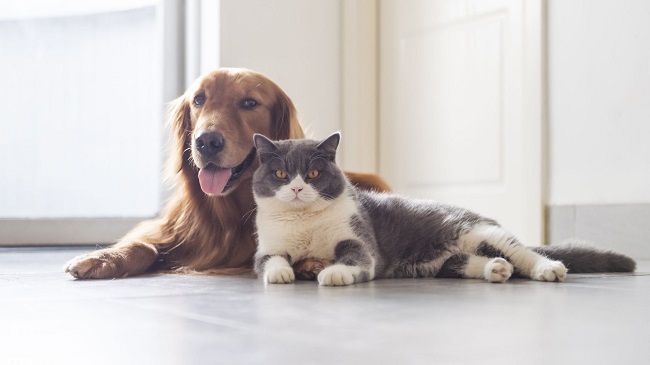In the first-ever reported incidence of human-to-pet transmission in the United States, an Arizona man who got COVID-19 earlier this year is thought to have disseminated the virus to his two pets.
On March 6, the anonymous individual, who is 28 years old and has never been vaccinated, experienced Covid symptoms and tested positive for the virus.
His dog and cat tested positive for Covid ten days later.
It’s the first time a pet has contracted COVID-19 from a human, giving specialists a new perspective on how the global virus is spreading.
Dr. Hayley Yaglom, an epidemiologist at the Translational Genomics Research Institute in Flagstaff, Arizona, and the study’s principal researcher, said that there’d been a lot of evidence over the past 18-plus months that animals are susceptible to catching the virus.
‘They don’t necessarily become sick, but they can be exposed to COVID-19 and infected with it.’
According to researchers who published their findings in the journal One Health in September, the individual was infected with a unique, uncommon form of the virus.
His pets tested positive for the same strain soon after, and because neither of them spends much time outside, the only way they could have caught it was through him.
The experts found that the virus was given to the dogs by the guy, not the other way around, because he developed symptoms first, and the pets have minimal interactions with anyone outside of the family.
The researchers could not tell whether the animal was the first to catch the virus or whether it was passed from one to the other.
However, they claim that the cat and dog are ‘buddies’ who spend a lot of time together and have a lot of personal contact.
The virus was asymptomatic in both of the animals.
While this is the first incidence of the virus being transmitted from humans to pets in the United States, researchers have suspected it for some time.
According to Yaglom, other researchers have discovered some proof that this form of transference is conceivable but have not been able to ascertain a single instance of it occurring.
While the virus passing from animals to humans is a distinct possibility, Yaglom said she is unaware of any cases of a domesticated animal conveying the virus to a human.
Because they only interact with members of the household on a daily basis, animals who live in a home with a person are unlikely to catch Covid on their own.
Her team, on the other hand, is still looking at inter-species Covid spread.
People who are Covid-positive should consider taking some precautions to protect their pets.
When a person is sick with the virus, they should resist hugging or napping with their pet, specifically if they are unwell.
They should also wash their hands frequently and wear a mask when near their pet.
The researchers’ most crucial advice was to be vaccinated, as stopping oneself from contracting the virus could eliminate the possibility of transmitting it to a pet.
Source: CDC

 DogExpress
DogExpress


















 in Chandigarh, India.
in Chandigarh, India. 
